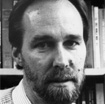The Old Testament texts in Series A move from the prospect of death (Genesis 2:17) to the deathliness of exile depicted as a valley filled with dry bones (Ezekiel 37).
Repeatedly God must intervene to create both a stay of execution and then new possibilities for a continued relationship. Adam and Eve do not die immediately, but they recognize their naked vulnerability. God provides for continued life, but life is now conflicted. God has more to do. In the promise to Abraham in Genesis 12, a new chapter in God’s restoration of creation is opened, but famine, barrenness and other threats remain in life. Human transformation is partial. Again, God has more to do. In Exodus 17, shortly after being freed from the bondage of Egypt, the people encounter a lack of water. The obstacle is not met with trusting confidence; rather quarreling breaks out and even Moses wonders what God is up to. “Is the Lord among us or not?” This question haunts all candid assessments of the condition of the world.
Such a question could have been asked as Saul’s kingship unravels in disobedience and the nation faces a crisis (1 Samuel 16). Samuel is compelled to anoint David, God’s choice. David will introduce his own forms of disobedience, even though God commits to him without reservation. After David, the history of Israel and later Judah is replete with disobedience until finally the people of God are sentenced to Exile. Here is where Ezekiel 37 picks up the storyline. Exile is deathly, a valley of dry bones. Can these bones live? The prophet hesitates to answer and states, “O Lord God, you know.” The quest for knowledge in Genesis 3 is suspended. Ezekiel is compelled to speak the unimagined word: God will create again, breathe life into existence again. Yet again, God has more to do.
The shifts between disobedience and God’s creation of a future beyond disobedience set the stage for Holy Week when human disobedience will reach its limit in the cry, “Crucify him!” God submits to the disobedience and God must once again — and finally — create new life.
One thread in the Series B texts is covenants, particularly covenants which emphasize God’s commitment. In Genesis 9 God establishes an “everlasting” covenant with both humans and all living creatures. A rainbow is the sign of this covenant; when God sees it, God will “remember” this covenant in which God commits to never again flood the earth. The recurrence of “remember” in Jeremiah 31:34 (Fifth Sunday) forms a striking contrast: The rainbow triggers God’s memory of a covenant of life, but later God pledges never to remember the death producing iniquity of humanity. In the crucifixion and resurrection of Christ, God’s pledge not to remember our sins is deepened to the fullest extent.
In the covenant with Noah and all living creatures, God sets out on a path that will finally lead to the Cross. Once the commitment becomes everlasting, there is no turning back. The barrenness of Sarah can and must be overcome (Genesis 17); there the covenant is also termed everlasting and there is no human contingence. The Ten Commandments (Exodus 20) do not make the relationship contingent; rather, they establish the character of life lived outside the house of bondage. The preface to the commandments (Exodus 20:2) seals the relationship from God’s side. When pushed by human disobedience, God makes provision for life and continued relationship (Numbers 21). In Jeremiah 31 God extends the commitment by going beyond the relationship established in the Exodus (cf., Exodus 20:2 and Jeremiah 31:32). God pledges to transform humanity into obedience both by changing the character of humanity and God. God will forgive, but that means God will have to stop remembering our sins. What an extraordinary promise! That promise will take God to the Cross.
Series C pivots around provision. In the festival of first fruits (Deuteronomy 26), the worshippers celebrate God’s provision both past and present, from liberation from oppression to daily provision of sustenance. Genesis 15 hearkens back to the start of the story narrated in Deuteronomy 26. God provides a future beyond the one Abraham is able to plan — a future beyond the limited lifespan Abraham has on this earth. Isaiah 55 pushes the limits of our imaginations about God’s provision. Our seeking will not discover an outer limit to God’s provision. Seek! Yes, seek, but not in a way that makes God’s pledge contingent on our obedience, for God’s thoughts about our future exceed our imagination.
Joshua 5 brings us back to events closer to our daily time and space experience. Manna has provided nourishment through the wilderness journey, but now Israel eats the produce of the land. The switch, however, is connected to the Passover which is grounded in the exodus from bondage in Egypt. Daily food is connected to a deeper narrative of deliverance. It is never merely mundane. Isaiah 43 joins Joshua 5 in invoking the exodus narrative of liberation, but then surprisingly asks the reader to forget the former things. Forget old stories of deliverance! Nostalgia only makes one feel bad about missed opportunities and old sins. God has something new is store. More than restoration of a faded past, God is creating anew. All of existence is transformed. Can a resurrection be far behind?

